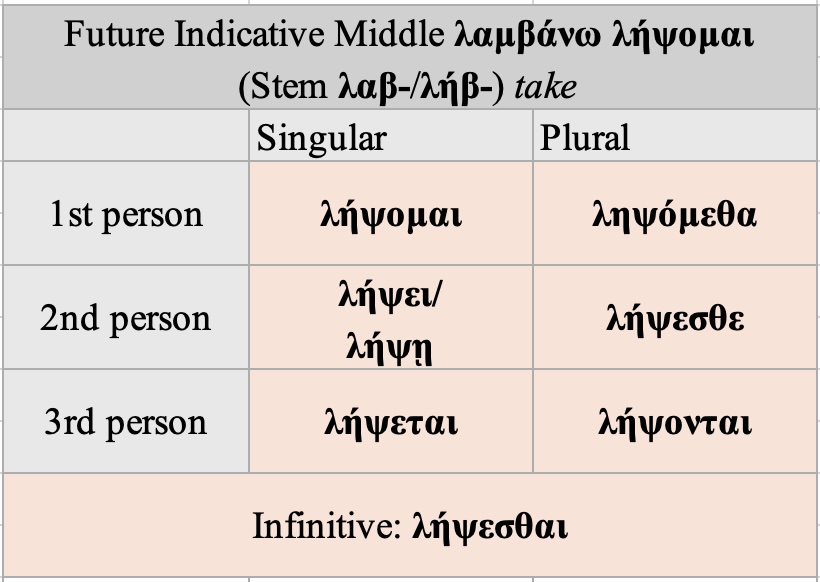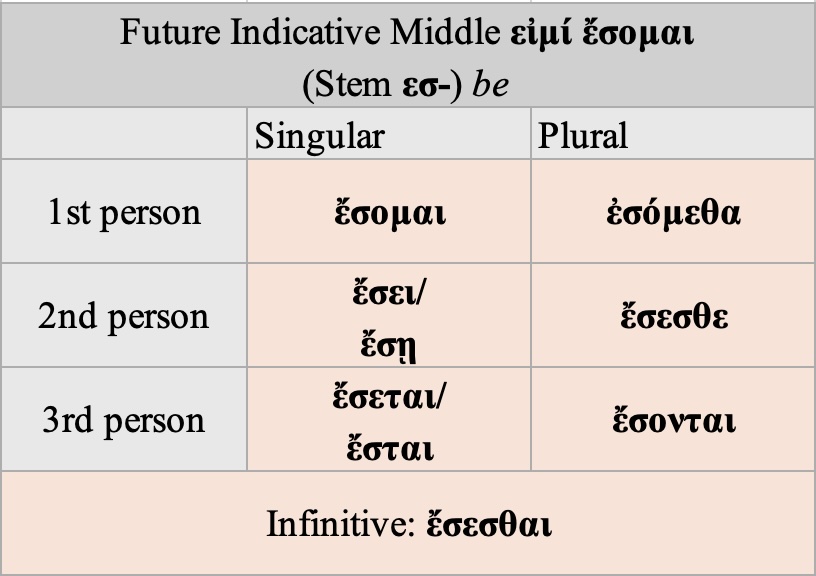22.6 Some verbs that are regularly ACTIVE in the PRESENT TENSE are regularly MIDDLE in the FUTURE TENSE. The challenge of conveying middle meaning in the future of these verbs is complex, and a topic reserved for advanced study. A few tendencies, however, may be noted (S 805-806):
- They often form their present tense stem with –αν– or –σκ-.
- They often denote the activities of the physical organs or senses (voice, sight, hearing, smell, touch…).
Note the following verbs from previous vocabulary that have MIDDLE (but no ACTIVE) FUTURES.
- ἀκούω, ἀκούσομαι hear
- ἁμαρτάνω, ἁμαρτήσομαι (ἁμαρτ-) miss, make a mistake
- ἀποθνῄσκω, ἀποθανοῦμαι (θαν-) die
- βαίνω, βήσομαι (βη-) walk, come, go
- βλέπω, βλέψομαι see, look (at)
- γιγνώσκω, γνώσομαι (γνω-) know, learn, judge, think
- εἰμί, ἔσομαι (ἐσ-) be
- λαμβάνω, λήψομαι (λαβ-/ληβ-) take, grab; receive, get
- μανθάνω, μαθήσομαι (μαθ-) learn, ascertain
- πίνω, πίομαι (πι-) drink
- φεύγω, φεύξομαι flee, run away, avoid, shun
22.7 Putting it all together, the Future, Indicative, Middle of λαμβάνω, λήψομαι would appear as follows:
22.8 Another important verb, εἰμί ἔσομαι be, forms its future in the middle voice. Recall that the verb stem for εἰμί is ἐσ-. To this stem is added a thematic vowel and the middle personal endings. The result is a Future Indicative that inflects as follows:




